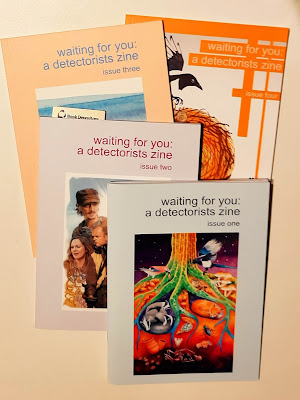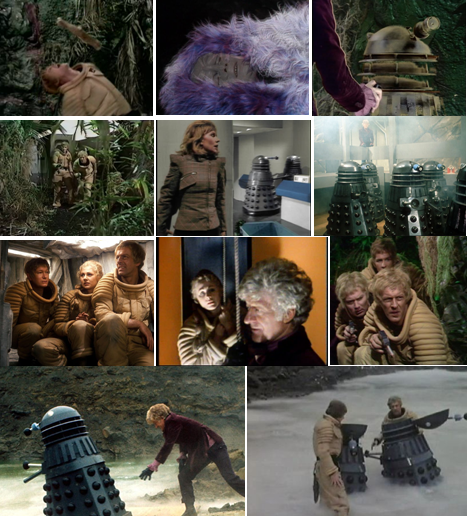Hauntology: Ghosts of Futures Past
Written by: Merlin Coverley
Read by: Alan Turton
Oldcastle Books - 2020
Audible / digital download
So I thought I would read something a little different between all the M R James, the YA fiction and the Doctor Who. On top of that I was following a bit of a synchronicity bylane that started on a trip to central London, heading to The Barbican Centre, and that somehow dropped me off in a second hand bookstore in Bloomsbury and putting my hand on Merlin Coverley's Psychogeography book. There were another couple of bends in the road that lead me to Coverley's other book on Hauntology, and on audible, but this is where I found myself a couple of weeks back. Sometimes you just have to go with it and land where you land.


Hauntology: Ghosts of Futures Past is not my first book on hauntology but its one of those subjects that benefits from multiple explanations and from a variety of sources. It's also a slightly shifting term that will not, and probably should not, be definitively defined. And because of that it tends to be explained through examples rather than as an absolute. Different authors, different evidence and reasoning. What was interesting and made me smile about reading this though, was the reference to M R James as an early contributor to what would become the hauntological cannon. It posed that while James' stories were classic examples of the Victorian ghost story, the specters at the heart of most of them were uncanny and other-timely, perhaps even abstract, not so much the ghosts of the dead but agents of a past time encroaching into what was then the modern world.
I think I'm a step nearer to understanding why M R James now feels more important and significant to me in recent years. And it also explains why what should be an old fashioned set of ghost stories actually translates through modernisation so very well.
Another name that gets mentioned a lot in the book is that of Mark Fisher and its reminded me that I'm long overdue rereading his Ghosts of My Life and The Weird and the Eerie. Fisher's words and works had a significant impact on my thinking and understanding of "things cultural" and it would be interesting to check in on those ideas again and see what I get out of them on a second pass.
I think that perhaps, given the subjects of his books, I thought Merlin Coverley might turn out to be a new guiding light but although I will probably read more of his work, this felt more like an appraisal of other peoples ideas than any fresh thinking on the subjects themselves. I didn't leave with a reading list of new names to track down or the need to recommend this to anyone else with any great enthusiasm. Its not a bad book but go read Mark Fisher first.

What else to say about the book. Well, I went through it pretty quickly because I find the subject fascinating but had I have been reading it in actual book form I might not have read it as fast or even finished it due to its very dry academic style. As an audio its much easier to ignore that because I'm probably washing up or ironing or doing some other physical activity at the same time that makes that less wearing. Unfortunately, as an audio I also almost didn't finish it but because the narrator is bloody awful and should have been directed to drop the 'Allo Allo' level of accents employed when quoting other folk and the excruciating way of saying; "DA-ReeeDA" when all he actually needed to do was say Derrida as though it were just a normal name. As the first person to employ the term; Hauntology, Derrida pops up quite a lot and the temptation to throw my phone across the room on every corrupted utterance was sorely tempting.
"I hear you Clem Fandango"
Steve


























